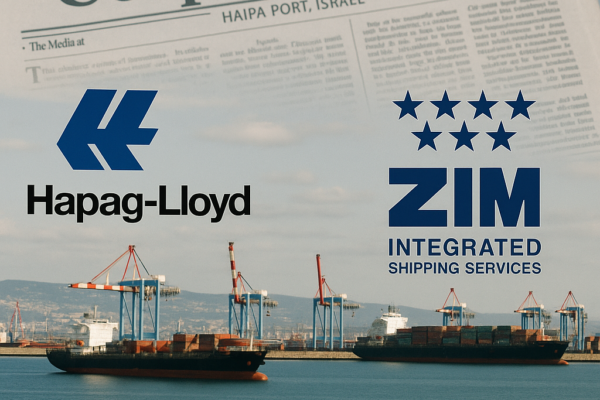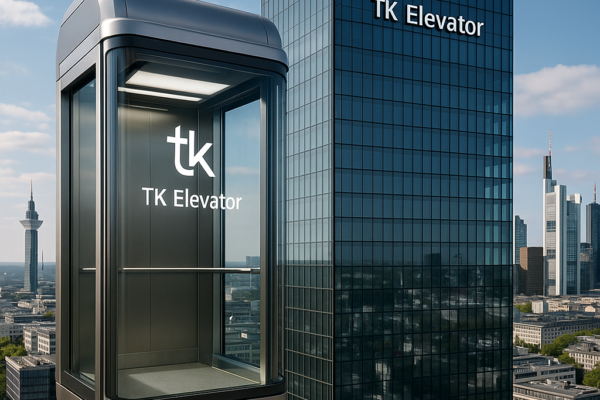The UK Competition and Markets Authority (CMA) has initiated a formal investigation into Boeing’s proposed $4.7 billion acquisition of Spirit AeroSystems, marking a critical regulatory hurdle for the vertical integration strategy aimed at resolving Boeing’s supply chain crises. Announced on June 26, 2025, the CMA’s inquiry focuses on potential anti-competitive effects in the UK aerospace market, particularly concerning Spirit’s Belfast and Prestwick facilities that manufacture essential components for Airbus aircraft. This regulatory scrutiny coincides with Spirit’s parallel divestiture agreement with Airbus – a complex arrangement where Boeing must navigate labor uncertainties affecting 2,500 Belfast jobs, potential Phase 1 investigation delays extending into late 2025, and the risk of diminished synergies should the $8.3 billion transaction fail to close by Q3 2025 as planned. The outcome will test Boeing’s ability to stabilize its troubled supply chain while reshaping global aerospace manufacturing dynamics.
💼 Seasoned CorpDev / M&A / PE expertise
Strategic Rationale Behind Boeing’s Reacquisition
Boeing’s decision to reabsorb Spirit AeroSystems – a company it spun off in 2005 – stems from catastrophic quality failures culminating in the January 2025 Alaska Airlines 737 MAX 9 door plug blowout. The all-stock transaction, valued at $37.25 per share representing a 30% premium over Spirit’s pre-announcement price, aims to realign manufacturing incentives and safety protocols across Boeing’s commercial aircraft programs[5][6][8]. By reintegrating Spirit’s operations, Boeing seeks direct control over critical aerostructures including fuselages, wings, and propulsion systems – components whose quality lapses have grounded aircraft, triggered federal investigations, and eroded airline confidence. The $8.3 billion total deal value (including $3.6 billion of Spirit net debt) positions Boeing to internalize approximately 70% of the 737 MAX airframe’s value stream, reducing supply chain vulnerabilities exposed during recent production halts[6][11].
Safety Failures as Acquisition Catalyst
The Alaska Airlines incident served as the proximate catalyst for the acquisition, revealing systemic quality control breakdowns across Boeing’s outsourced production model. National Transportation Safety Board (NTSB) investigations confirmed that Spirit’s Wichita facility improperly installed the door plug involved in the mid-air failure, while subsequent audits identified hundreds of non-conforming parts across 737 MAX and 787 programs[5][12]. Boeing CEO Dave Calhoun framed the acquisition as essential to “fully align our commercial production systems, including our Safety and Quality Management Systems,” acknowledging that fragmented ownership of design and manufacturing responsibilities undermined accountability[5][8]. Internal Boeing assessments projected that without direct control over Spirit, the company risked additional $8 billion in cash burn during 2024-2025 from production delays and rework – exceeding the acquisition’s equity valuation[11][12].
UK Regulatory Framework and Investigation Timeline
The CMA’s formal inquiry, launched June 26, 2025, operates under the Enterprise Act 2002 merger provisions, assessing whether Boeing’s acquisition “may be expected to result in a substantial lessening of competition” within UK aerospace markets[2][4][7]. The Phase 1 investigation commenced with a 20-day invitation for public comments closing July 15, 2025, after which the CMA will determine whether to clear the transaction, accept binding remedies, or escalate to an in-depth Phase 2 review[2][9][10]. Statutory deadlines remain fluid, but precedent suggests a Phase 1 decision typically follows within 40 working days of formal investigation launch – potentially pushing determinations into late Q3 2025[2][12]. Crucially, the CMA’s jurisdiction extends to transactions affecting UK markets regardless of corporate nationality, giving it authority over Kansas-based Spirit due to its Northern Ireland and Scotland operations employing over 3,400 workers[12][13][15].
Competition Concerns in Focus
Regulatory scrutiny centers on Spirit’s dual role as supplier to both Boeing and Airbus, particularly after the planned divestiture of Airbus-related assets. The CMA’s preliminary assessment identifies three risk vectors: potential foreclosure of rival aircraft manufacturers from critical aerostructures; reduced innovation in wing and fuselage technologies; and increased buyer power over remaining UK aerospace suppliers[2][7][12]. Spirit’s Belfast plant produces A220 wings for Airbus and components for Bombardier business jets, while its Prestwick facility manufactures A320/A350 wing components – collectively representing 22% of the UK’s aerospace export value[13][15][16]. Although Boeing and Spirit argue the Airbus divestiture eliminates overlaps, the CMA must evaluate whether Belfast’s non-Airbus operations (supporting Bombardier and legacy programs) could deteriorate under Boeing ownership, indirectly harming competitors through reduced investment or cross-subsidization[12][16].
Airbus Divestiture as Mitigation Strategy
Concurrent with the Boeing acquisition, Spirit executed a binding divestiture agreement with Airbus on April 28, 2025, transferring seven production sites responsible for Airbus aerostructures[13][14][15]. The €439 million transaction ($475 million equivalent) includes Spirit facilities in Kinston (A350 fuselages), St. Nazaire (A350 sections), Casablanca (A220/A321 components), Prestwick (A320/A350 wings), Wichita (A220 pylons), and Belfast (A220 wings)[13][15][16]. Crucially, Airbus gains options on Spirit’s Subang, Malaysia plant and Belfast’s A220 mid-fuselage production if no independent buyer emerges before closing[14][16]. This carve-out strategy, negotiated under Airbus CEO Guillaume Faury’s oversight, aims to firewall Airbus programs from Boeing influence while ensuring production continuity – a structure Boeing cites as resolving competition concerns[6][13][15].
Belfast’s Fragmented Future
The divestiture creates operational fragmentation at Spirit’s 1.2 million sq ft Belfast facility, where Airbus will acquire only the A220 wing production line while 2,500 workers supporting Bombardier business jet programs await new ownership[12][16]. GMB union officials describe the site as facing “carve-up” risks, with Boeing showing minimal interest in retaining non-core operations and no viable buyer identified for the Bombardier segment[12]. Under the memorandum of agreement, Airbus extended Spirit a $200 million non-interest-bearing credit line to sustain operations, but this excludes the Bombardier workforce[13][14]. The UK government faces pressure to broker job guarantees, potentially demanding Boeing maintain Belfast operations as a CMA clearance condition – a scenario that could add $150-200 million in annual liabilities to Boeing’s post-acquisition integration costs[12].
Financial and Execution Risks for Boeing
Boeing’s weakened financial position amplifies regulatory and integration risks, with the company burning approximately $8 billion cash in H1 2025 amid production slowdowns and penalty payments[11][12]. The all-stock transaction structure – necessitated by Boeing’s junk-bond-equivalent credit metrics – exposes Spirit shareholders to further downside should Boeing’s operational recovery falter[6][11]. JP Morgan analysts estimate that a six-month CMA delay would erase $1.2 billion of projected $1.8 billion annual synergies, primarily from deferred supply chain integration and duplicate overhead costs[12]. Furthermore, Spirit’s projected $650-700 million cash burn through Q3 2025 creates urgency for timely closure, as additional liquidity injections could dilute Boeing’s balance sheet ahead of $4.3 billion debt maturities in 2026[6][12].
| Metric | Value | Source |
|---|---|---|
| Equity Value | $4.7 billion | Boeing announcement[5][8] |
| Total Enterprise Value | $8.3 billion (incl. $3.6B net debt) | Spirit SEC filings[6] |
| Spirit Share Price | $37.25 (30% premium) | Deal terms[5][6] |
| Projected Synergies | $1.8 billion/year by 2027 | Boeing investor materials[6][12] |
| Integration Costs | $1.1 billion (estimated) | JPMorgan analysis[12] |
Broader Aerospace Industry Implications
The CMA’s decision will influence vertical integration strategies across the aerospace sector, where OEMs increasingly seek control over tier-1 suppliers following pandemic-era disruptions. Airbus CEO Guillaume Faury’s parallel acquisition of Spirit’s Airbus-dedicated assets establishes a counter-model: targeted vertical integration without full supplier ownership[13][15]. For Boeing, successful Spirit reintegration could accelerate similar moves in propulsion and landing gear systems, potentially triggering consolidation among remaining aerostructure specialists like GKN Aerospace and Triumph Group[12]. Conversely, regulatory obstruction might reinforce the status quo of fragmented specialization, preserving independent suppliers but potentially prolonging the coordination challenges that contributed to Boeing’s quality crises[11][12]. The UK’s stance may also inform ongoing U.S. Department of Justice and European Commission reviews, both conducting parallel assessments of the transaction’s competition impacts[1][4][7].
Path Forward and Investment Considerations
Boeing faces three critical milestones before closing: securing CMA Phase 1 clearance by October 2025; finalizing the Airbus asset transfers without French labor disputes; and resolving Belfast’s Bombardier operations through sale or guaranteed funding[12][13][16]. Investors should monitor the July 15, 2025 comment period closure for CMA sentiment indicators, while tracking Spirit’s Q2 cash flow for liquidity pressure signs[2][12]. The deal’s risk-reward profile remains asymmetric: Boeing shares could appreciate 15-20% on regulatory clearance given Spirit’s strategic importance, but face 8-10% downside on delay or remedy requirements; Spirit shares trade near deal price, offering minimal upside with high binary risk[12]. For
Sources
https://www.law360.com/articles/2357913/uk-investigating-boeing-s-4-7b-deal-for-spirit-aero, https://www.gov.uk/cma-cases/the-boeing-company-slash-spirit-aerosystems-holdings-inc-merger-inquiry, https://aviationweek.com/air-transport/safety-ops-regulation/uk-competition-regulator-investigates-boeing-spirit-deal, https://www.pymnts.com/cpi-posts/uk-competition-watchdog-reviews-boeings-plan-to-reacquire-spirit-aerosystems/, https://www.foxbusiness.com/economy/boeing-buy-spirit-aerosystems-4-7-billion-manufacturer-addresses-safety-concerns, https://www.mergersight.com/post/boeing-s-8-3bn-acquisition-of-spirit-aerosystems, https://www.mlex.com/mlex/dealrisk/articles/2357835/boeing-spirit-aerosystems-deal-faces-uk-antitrust-probe, https://www.govconwire.com/article/boeing-strikes-4-7b-all-stock-deal-for-spirit-aerosystems-dave-calhoun-quoted, https://www.itiger.com/news/2546736015, https://www.tradingview.com/news/reuters.com,2025:newsml_FWN3ST0PO:0-uk-s-cma-considers-if-boeing-spirit-aerosystems-merger-may-lessen-competition-within-any-market/, https://leehamnews.com/2024/06/25/boeing-simply-cant-afford-a-cash-deal-for-spirit-aerosystems/, https://www.ainvest.com/news/boeing-spirit-deal-hinges-uk-regulatory-risks-job-security-uncertainties-2506/, https://www.spiritaero.com/pages/release/spirit-aerosystems-signs-divestiture-agreement-with-airbus/, https://www.prnewswire.com/news-releases/spirit-aerosystems-signs-divestiture-agreement-with-airbus-302439157.html, https://www.compositesworld.com/news/spirit-aerosystems-signs-divestiture-agreement-with-airbus, https://pulse2.com/spirit-aerosystems-to-transfer-certain-assets-to-airbus/





